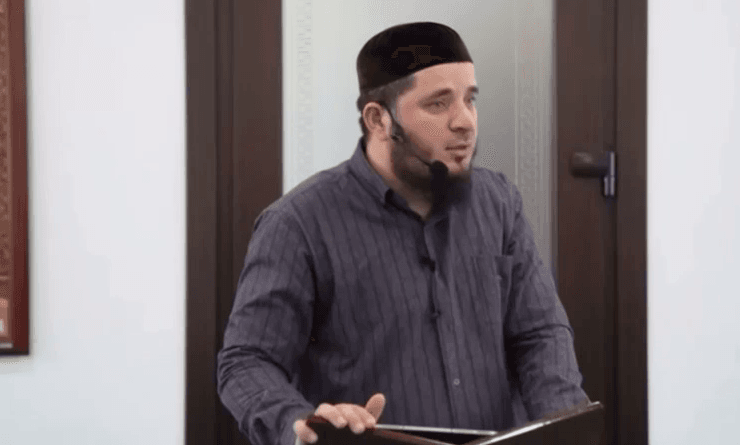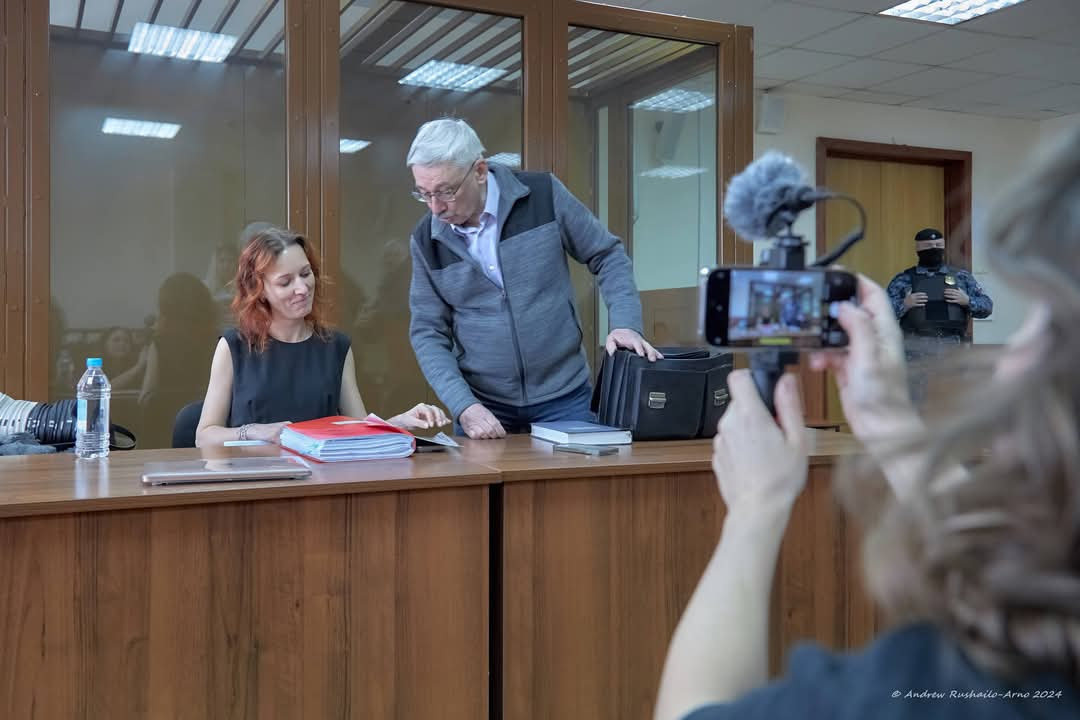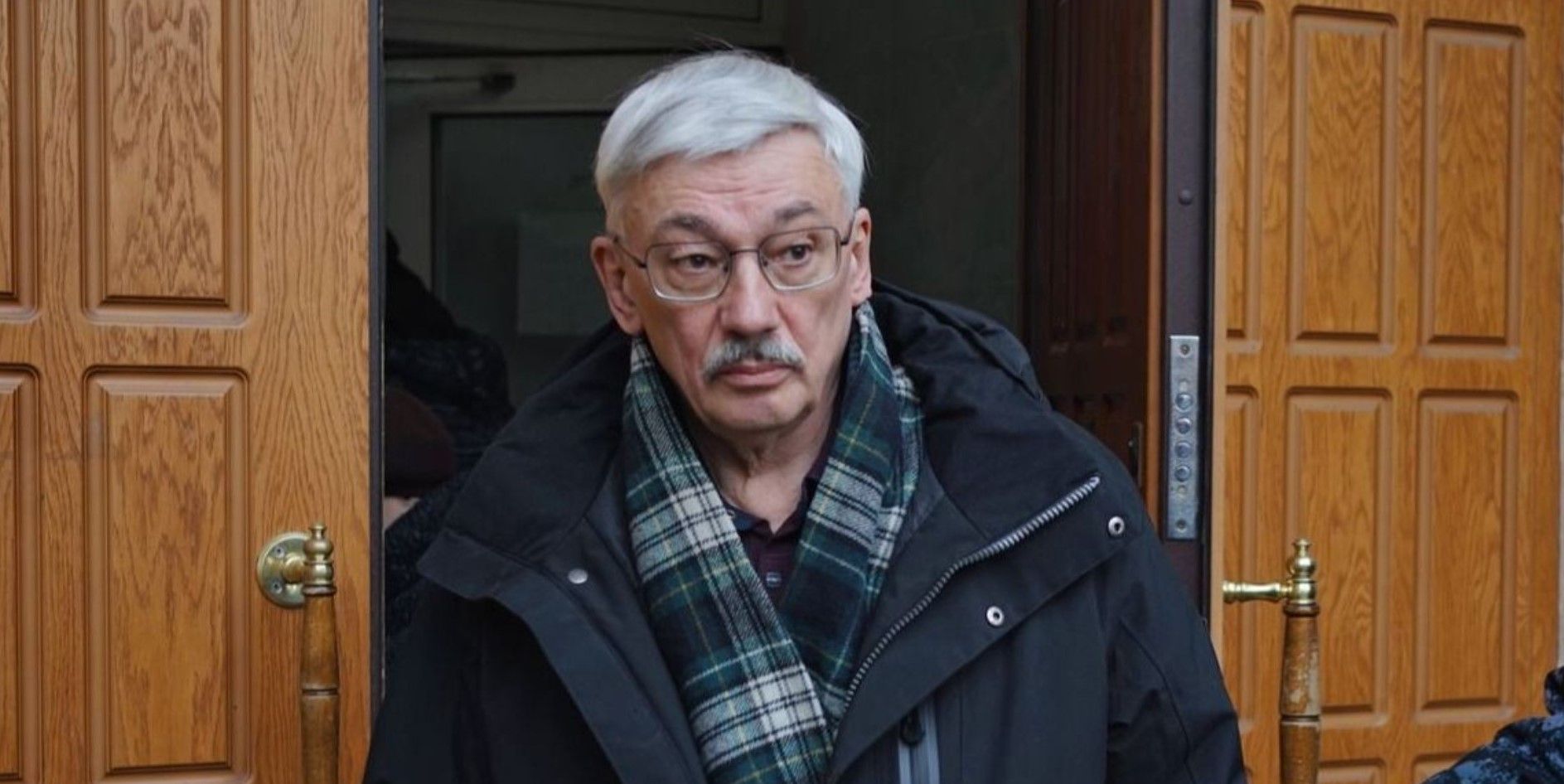Этот материал доступен на других языках: ru
25 APR 2025
"Return respect for the rule of law and human rights to international politics!" Appeal by Russian human rights defenders
25 APR 2025
Оглавление
In the past weeks and months, the attention of Russian, Ukrainian, and international human rights defenders has been focused on negotiations to end the war in Ukraine.
Back in January 2025, addressing the parties and participants in the negotiations, human rights defenders drew attention to the situation of people: prisoners of war from both sides, illegally detained Ukrainian citizens, Ukrainian children brought to Russia, as well as Russian political prisoners. The international campaign ”People First” called for making their fate one of the priorities in the negotiations.
In February, on the third anniversary of the start of Russia’s full-scale war against Ukraine, a group of UN special rapporteurs and experts called for putting legal and humanitarian issues at the forefront of political negotiations to end the war. They stressed that the Russian state must be held accountable for the aggression against Ukraine, including the war crimes committed during the aggression, and for the repressive policy inside its country. After all, the first could not have happened without the second: the invasion of Ukraine became possible thanks to the system of retaining power through political repression created in Russia over the decades. According to experts, the cases of more than three thousand prisoners in Russia are perceived as politically motivated on the part of the authorities. There are reports of torture and life-threatening conditions of their detention, as well as deaths of political prisoners in prisons and colonies.
However, reports on the progress of the peace talks and consultations make it more and more doubtful that they are based and focused on humanitarian issues, human rights, and the law itself.
Human rights as the foundation of the post-war world
In the twentieth century, the concept of human rights, which formed the basis of international law and is enshrined in numerous international documents, became perhaps the main achievement of the humanitarian progress of humankind, which survived the horrors of two world wars.
After World War II, the countries participating in the anti-Hitler coalition initiated the creation of the United Nations. The United Nations adopted the Universal Declaration of Human Rights, and a number of pacts and agreements have emerged from it. In 1975, the Helsinki Final Act was signed, which established the relationship between military-political security and respect for human rights and democratic principles. Respect for human rights was affirmed as a necessary condition for maintaining and strengthening international peace and security and developing cooperation between States. These documents and mechanisms were supposed to prevent World War III and guarantee the observance of the inalienable rights of every human being, regardless of race, gender, language, religion, political or other beliefs, national or social origin.
This system was not, and could not be, perfect. Wars, crises, and dictatorships continued to arise all over the world. The Western and Eastern blocs were in a state of Cold War, and the world was on the verge of a hot war. But still, the Third World War did not happen: nuclear catastrophe was prevented, and humanity survived. Important norms and values were established in world politics, anchored within the framework of the United Nations and the OSCE – values that could and should have been aspired to. Europe was assured decades of lasting peace. Humanity entered a period of economic growth, technological development and global cooperation – for a long time, it seemed.
After the collapse of the Eastern bloc, and then the USSR, the former “socialist” and post-Soviet countries received the opportunity to independently build a democratic future. They opened their borders and internal markets, and began to look for their place in the global community. The jurisdiction of the European Court of Human Rights was recognised by many new countries outside the “old Europe”, including Russia.
An important participant in this movement towards progress was the United States of America, which became the source of advanced legal and human rights practices and institutions operating in many countries today. This movement itself was non-linear, and the United States by no means has always played a positive role. But in the end, its contribution to the promotion of democratic values and norms of international humanitarian and human rights law has been significant. The commitment of the United States to the values of human rights, the rule of law, and democracy appeared indisputable.
A return to a world without rules
Russia’s aggression against Ukraine became a decisive challenge to this established system of international relations, which, alas, is too fragile. For most countries of the world, the principle of solving interstate problems based on the “right of the strong” through war, chosen by the Putin regime, turned out to be unacceptable. Democratic countries provided Ukraine with assistance to repel aggression, although sometimes insufficient.
Since the end of January 2025, a new serious crisis has emerged in international politics, caused by the United States’ rejection of the legal standards and principles on which the post-war world was built. The policy of the new American administration is increasingly based on the same ideas about the “right of the strong”, on the fact that great powers can decide the fate of other states and dictate conditions to them. In its declarations and assessments, the United States relies less and less on international law, and assessments and positions based on this law are easily revised.
Too much in these changes reminds us about practices, even to the level of blending, that are well known to Russian human rights defenders for the past twenty five years. For us, the “world without rules” has ceased to exist not since 2025, and not since the full-scale invasion of Ukraine in February 2022, and not even since February 2014. For a quarter of a century, Putin’s power has been rebuilding Russia based on the denial of human rights (above which are “the interests of the state”), the denial of law as such (it is only important to formally follow procedures or imitate them), and the denial of any values (since only interests exist that “everyone is really guided by”).
Moving away from an order based on common rules to arbitrarily set terms of “deals” means denying the agency of both people and entire countries, renouncing law and norms that are common to all, including human rights norms. We recognise all this, down to the details, based on our experience of the last 25 years.
By wanting to find a solution to the main European crisis today and end the war in Ukraine – a quick solution, but more impressive than effective – the U.S. President is actually equating the aggressor and the victim of aggression with his statements and actions. One gets the feeling that in the process of negotiations, he is more likely to ensure the interests of the aggressor to the detriment of guarantees of the safety of people in the country subjected to aggression and occupation, to the detriment of justice and sustainable peace.
Dangerous consequences
Half a century ago, the great scientist, humanist and human rights activist Andrei Sakharov wrote: “Peace, progress, human rights – these three goals are insolubly linked to one another: it is impossible to achieve one of these goals if the other two are ignored.”
Today they talk about peace, but at the same time the main principles of human rights and international law in their basic aspect – the prevention of military aggression and mass violations of human rights – are catastrophically devalued. Such a rejection of the principles of law does not lead to peace and progress, but to an inevitable chain of new catastrophes.
Russia's full-scale invasion of Ukraine was the result of many years of trampling on human rights within Russia itself and the lack of a proper response from the international community to these violations. Now, the loss of legal and value orientations in international politics can cause disasters of a global scale.
An unjust peace – a “deal” that contradicts the norms of law – sets a dangerous precedent. It normalises the Russian war against Ukraine, thereby giving the “green light” to a repeat of external aggression and a new wave of even harsher repression inside Russia.
Such a "deal" would be a signal to the whole world, a movement towards a dangerous, unstable situation, reminiscent of the periods on the eve of the two world wars of the 20th century. The departure from the principles of human rights and international humanitarian law in peace-making practice encourages impunity for crimes and will inevitably lead to new wars of aggression. Democracy in many countries will also be at risk, as the new rules of the game will open up wide opportunities for any autocrats and dictators. They will be able to suppress dissent and violate human rights in their countries without regard for international institutions or their international obligations.
There will be no peace without law
We call on the leaders of all democratic states, all politicians for whom human rights are not empty words, and civil society in all countries to make resolute efforts to bring law back into international politics.
This is the only way to create reliable conditions for long-term peace in Europe and prevent the emergence of new large-scale military conflicts on the globe. Otherwise, the whole world will soon find itself in a situation where the fate of people and countries will be decided solely by imperialist predators in the course of wars and bargaining.
We call on all participants in negotiations to achieve peace in Ukraine to put the human dimension first: the fate of prisoners of war and the protection of civilians, including in the occupied territories. We insist that negotiations should be based on the fundamental norms of international legal agreements, the UN Charter and the Helsinki Final Act, since they define the concept of aggression, uphold the principle of territorial integrity and sovereignty, and link military and political security with human rights. Without this, it is impossible to achieve a just and sustainable peace.
The appeal was adopted and signed by members of the Council of Russian Human Rights Defenders:
Galina Arapova, Alexander Cherkasov, Sergey Davidis, Leonid Drabkin, Yuri Dzhibladze, Sergey Krivenko, Sergey Lukashevsky, Karinna Moskalenko, Oleg Orlov, Lev Ponomarev, Elena Shakhova.
The names of other Council members who participated in the drafting of the appeal and signed it are not indicated for security reasons.
With requests for comments, please write to [email protected]
24 April 2025
Поделиться в социальных сетях


